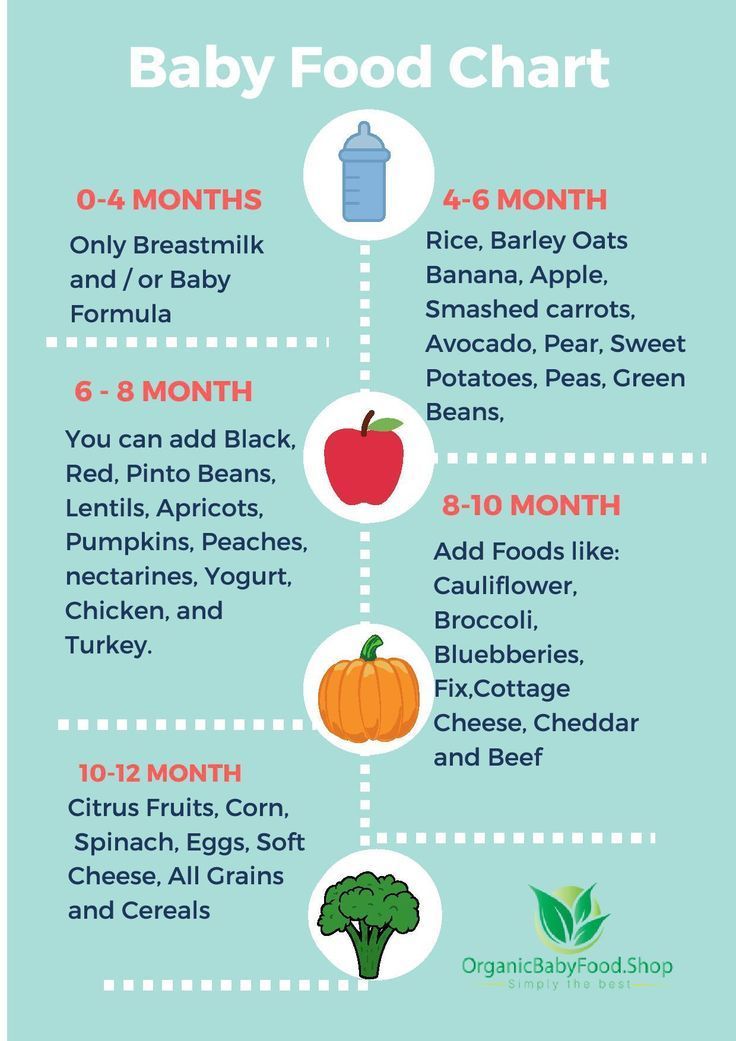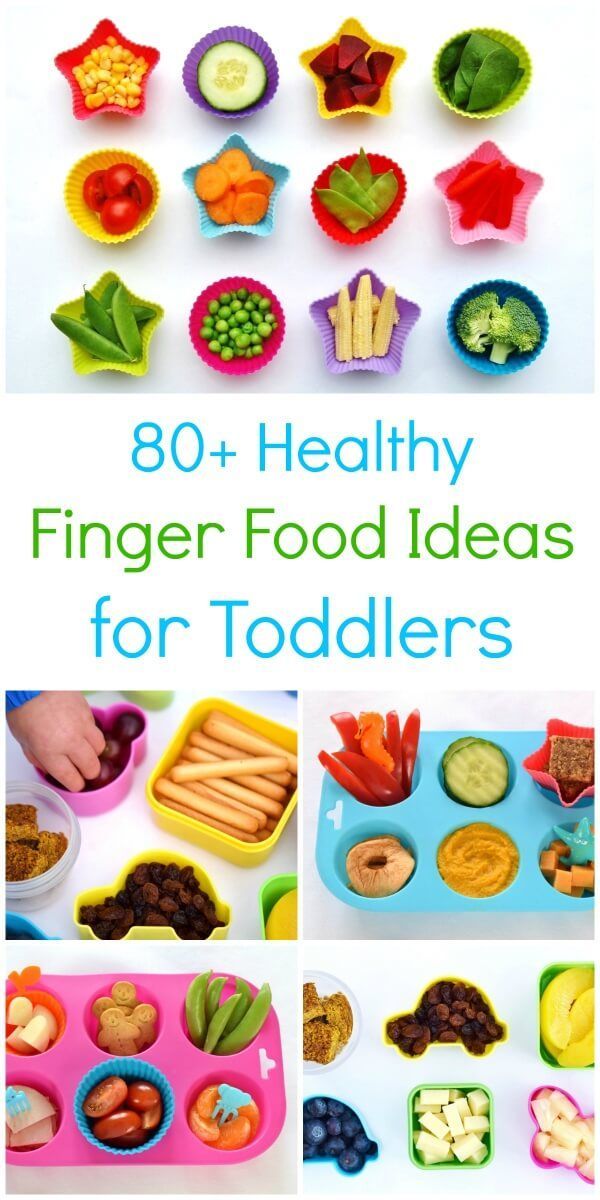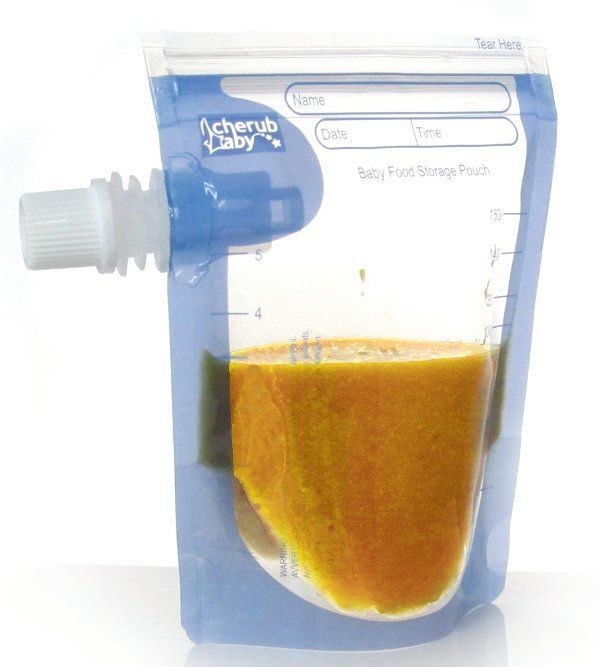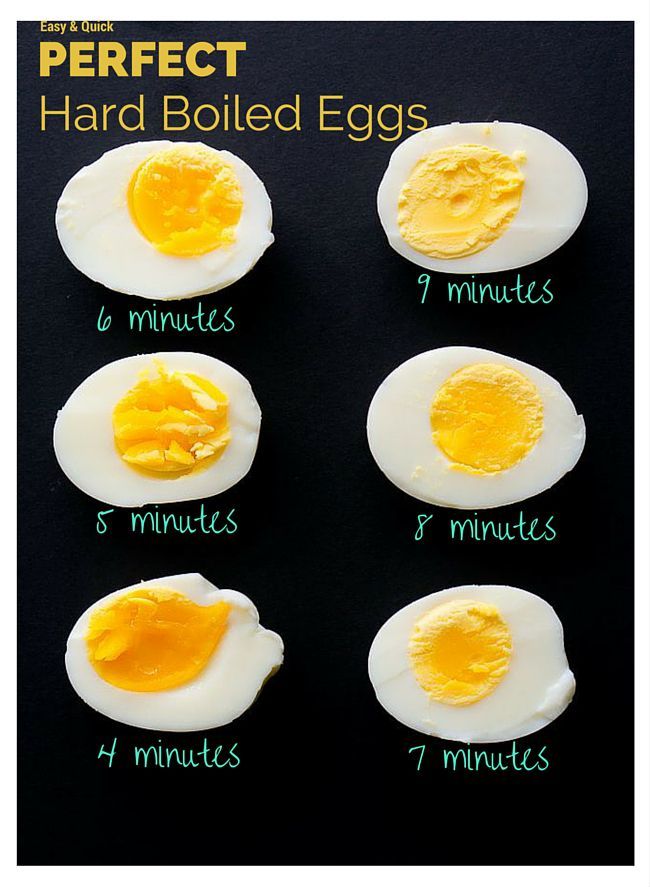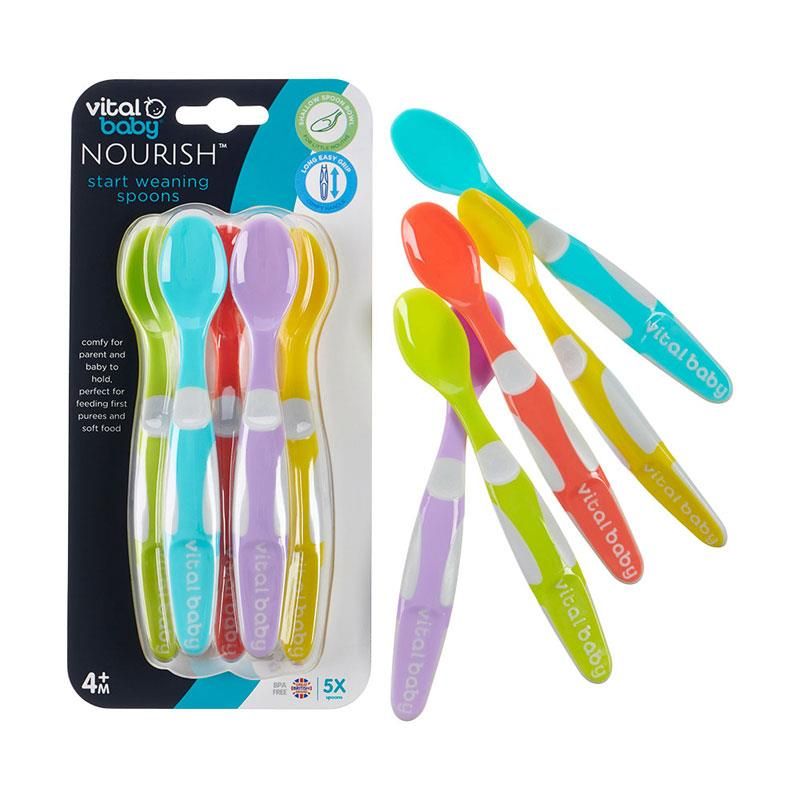Why does my baby keep wanting to feed
My Baby Wants to Breastfeed All the Time! Is This Normal?
Frequent Feeds Are Very Common!
In the first few days after birth, it is very common for newborns to feed constantly, probably around 12 or more times per 24 hours. Newborn babies drink very small amounts frequently in the first 1-2 days.
Most newborn babies only drink about a teaspoon (5-7ml) of colostrum at each feed on day one. This is just perfect as their tummy is about the size of a cherry and holds about 7mls at each feed on day one! Perfectly designed!
By day two you start to make a little bit more colostrum at each feed and this gradual increase in milk each day stretches bub’s tummy allowing them to drink more.
Colostrum is a sugary delicious drink but it is not jam-packed with fat at this stage, which means baby needs to keep feeding very often to stay full up.
Remember, every time your baby feeds it helps your breasts build your milk supply in the first month. As your milk increases in volume, from around day 3 onwards, you will notice your baby starts to have longer sleep periods of around 1. 5 – 3 hours mostly.
During the first month, newborn babies need to feed on average 8 – 12 times every 24 hours to ensure they are getting enough milk and that you stimulate the breasts enough to keep building your milk supply. One you have established a good milk supply in the first month you may find that your baby changes their feeding pattern again. Many mums report this happens around 6-8 weeks after birth.
After this first month, research has shown us that babies will breastfeed anywhere from 4-13 times every 24 hours, but most babies still feed on average 10-11 feeds every day.
Each mum and baby’s breastfeeding pattern is different and this is perfectly normal. It is just down to the levels of fat in your milk (and fat levels change throughout the day) and the amount of milk your breast can hold at each feed, as well as how your baby is feeling.
Babies Find Breastfeeding Relaxing
Most babies find breastfeeding very comforting and, just like if we feel upset a hug can do wonders. Likewise, a short extra breastfeed does the same for calming our babies!
Likewise, a short extra breastfeed does the same for calming our babies!
Do not compare yourself with another mum and baby’s feeding pattern. It will most likely be completely different from yours. Trying to “force” your baby into strict routines often brings with it tears and stress for mum and bub!
There are, of course, some mums who say that a routine was the best thing for their baby. But these babies are probably the very small percentage of babies who naturally feed every 4-5 hours and would’ve gotten themselves into a strict schedule anyway!
For most babies, a strict routine does not work! Try and go with the flow, listen to your baby’s cues for when they would like a feed and feed them. Just like us, they will not stick to the same “routine” every day.
I bet you didn’t have the same things to eat, in the same quantity, at the same time, with the same glasses of water, cups of tea or snacks as you have today! So why do we think this is normal for our babies?!
Cluster Feeds Continue After the First Few Days
Most mums report that their baby feeds frequently and is unsettled more so during the evening hours, most commonly between 6 – 10pm. Mums often say that their baby wants to be held constantly and feed “all the time” and that baby cries when put down in their cot.
Mums often say that their baby wants to be held constantly and feed “all the time” and that baby cries when put down in their cot.
This is a very normal and common behaviour for babies who are otherwise content during other parts of the day, feeding and gaining weight well and are generally healthy.
Babies do have these periods of cluster feeding, often most present between 2 and 9 weeks of age, but of course some babies will have these periods for several more weeks and still be totally healthy.
Researchers think it is a developmental stage that all babies naturally need to go through. There are a huge number of processes going on in a baby’s brain in the first year. Babies can easily get overwhelmed or dysregulated in the first few months in particular.
Babies who are overtired or overwhelmed, find it hard to calm down by themselves in the first few months of life and need someone to help them. And what better way to be calmed than having a breastfeed, which of course is not just food, but also a pain reliever and a happy hormone giver!
Also, being held and rocked allows baby to feel safe and warm, like being back in the womb. So, it makes sense that they need to be held and fed so much in the evenings after a big day in the big wide world!
So, it makes sense that they need to be held and fed so much in the evenings after a big day in the big wide world!
Normal Can Still Be Tiring!
Even though this is normal, it doesn’t stop it being exhausting. So, it’s important to note how you are feeling and coping.
Some of us have another person around to help us out, whilst other new mums have to manage alone during the cluster feeds. Regardless of your situation, it is important to realise that cluster feeding is normal.
If you are responding to your baby by holding them and feeding them, yet they are still crying in-between feeds you are not causing harm to your baby, you are still showing them love and they will calm when they are able to.
The other thing to remind yourself is that this is temporary. It is important to not place any demands on yourself during these times. Try preparing dinner at times in the day when baby is sleeping well and just re heat and eat when you can during the cluster breastfeeds!
If you have support, share the holding and rocking of baby with another person to give you a break. If you do not have supports around at that time, listen to your instincts; if you are starting to feel like it is all too much and you feel worried that you are not coping, place your baby safely in their bassinet and walk away to calm down for a few minutes, before coming back to hold baby again.
If you do not have supports around at that time, listen to your instincts; if you are starting to feel like it is all too much and you feel worried that you are not coping, place your baby safely in their bassinet and walk away to calm down for a few minutes, before coming back to hold baby again.
You could also try knocking on the door of your neighbour, who you know and trust, and asking them to hold your baby for 15 mins or so to give you a break.
Most people will understand and, if they have children, they will have gone through the same themselves. Doing this will not harm your baby, but, will give you time to relax a little and recharge.
If you are finding that you are not coping during other parts of the day then it is important to talk with your GP or contact PANDA http://www.panda.org.au/ for some extra help and support.
If you are concerned that your baby’s crying seems abnormal and you are worried if your baby may be unwell. Please get first line advice from these helplines (below). They will be able to give you support and further guidance:
They will be able to give you support and further guidance:
Health Direct helpline (covers all of Australia) 1800 882 436
Maternal and Child Health Nurse 24-hour helpline on 13 22 29 (if you are in the state of Victoria)
Other Things Which Can Help to Relax Babies During Cluster Feeding Times
Skin to skin contact
Having a bath with your baby – only do this if you have another person to help you and baby in and out of the bath and keep you both safe.
“Rocking your pelvis like Elvis” – Whilst holding your baby, try some rocking and swaying moves whilst holding baby either upright, over your arm like superman or in a cradle hold. Each baby will be different in the positions they prefer. You Maternal and Child Health nurse can show you positions for holding and calming babies.
Carrying your baby in a sling. This keeps baby nice and close and creates a womb like environment.
As you rock your baby make a loud “shuuusssshhhh” noise. This is actually calming for babies as it mimics the sounds of being inside the womb.
This is actually calming for babies as it mimics the sounds of being inside the womb.
Try taking 5 deep breaths with your eyes closed before breastfeeding baby to ensure you are relaxed and not tense.
Make sure you get extra sleep in the day time, even if you don’t feel like it make sure you lay down in a darkened, quiet room to rest your body and brain. Over the next few days you’ll soon be drifting off to la la land easily.
Lastly, remember that you cannot spoil a baby by holding them too much. All the information about spoiling babies came out of textbooks written in the early 1900’s!
We have known for years and years that holding and listening to your baby’s needs is the best thing to do, yet we still hear this very bad advice! So listen to your gut instinct and cuddle, love and feed your baby as they need it. This phase will pass and get easier over the next few weeks.
For more information head over to our Medela Australia Facebook page.
Do you ever feel like your baby wants to feed all the time, especially at certain times during the day? Let’s have a chat and support each other!
What to Do When Baby Wants To Eat CONSTANTLY
Cluster feeding is something almost every new mom will face, and it’s hard! In this post, we’ll explainwhy, plus equip you with helpful tips and tricks.
You just gave birth to this miraculous little human being. You’re exhausted. You haven’t showered in days and you’re in full postpartum mode. And yet, your sore nipples won’t catch a break because baby wants to feed ALL. OF. THE. TIME. Don’t worry, mama, this phenomenon is called cluster feeding and it is a.) perfectly normal and b.) temporary. ?
Cluster Feeding Video by Genevieve Howland
What Is Cluster Feeding?
Does it seem like baby wants to nurse all the time? Forget every two hours—it seems like your baby is ready for that milk every 20 minutes! Sounds like cluster feeding, a time when baby needs to nurse frequently in order to satisfy his appetite. Though cluster feeding can happen at any time of the day, it often happens in the evening and is accompanied by a period of fussy and restless behavior that can last for a few hours.
Get free updates on baby’s first year! – Free Updates on First Year [In-article]
Sign me up!
Why Do Babies Cluster Feed?
A schedule sounds nice, right? New parents learn very quickly that you can’t always count on an infant to follow any sort of schedule, no matter how hard you try! It’s normal to experience irregularities to your sleeping or feeding routine with a newborn (or even toddler!)
When baby wants to cluster feed, it’s generally to satisfy the nutritional demands of a growth spurt (also known as a wonder week)—a time when baby is growing and developing both mental and motor skills.
After a bout of cluster feedings, mom’s breast milk output or supply will usually be higher to support baby’s bigger size.
How Long Do Babies Cluster Feed?
Your baby may want to cluster feed anywhere from a few days to several weeks at a time during a significant growth or development period.

According to La Leche League, baby experiences the most rapid growth during the first two months of life. Significant growth spurts (and hence, cluster feedings) most often occur at these times:
- Day 2
- weeks 2-3
- weeks 4-6
- 3 months
Navigating these lengthy periods of increased feedings can be difficult. It’s crucial to remember that this too shall pass—your baby just needs a little extra help in order to fully develop into the healthy, beautiful child that he is destined to become.
How to Take Care of Yourself During Cluster Feeding
When baby wants to eat every 20 minutes, your focus narrows on making sure he gets enough to eat. But don’t forget to take care of yourself! Cluster feeding can be a trying time for Mama, too. Here are some ways to ease the emotional and physical burdens:
Take care of your breasts
Even if your baby has a good latch, frequent nursing sessions can be brutal for your nipples. The good news: There are many effective remedies for sore nipples that are safe for both you and your baby. Here are some ways you can take care of yourself:
The good news: There are many effective remedies for sore nipples that are safe for both you and your baby. Here are some ways you can take care of yourself:
- Use nipple creams: Buy creams, use coconut oil, or try my DIY recipe.
- Apply a warm compress: Cover your breasts with a warm, damp towel for about 10 minutes to ease any tenderness and increase blood circulation.
- Avoid underwire bras: Underwire can put unnecessary pressure on breasts, causing even more soreness.
- Go topless: It’s your house and you can do what you want! Loose clothing—or no clothing at all—will eliminate any extra chafing and can do wonders for irritated nipples.
- Rotate breastfeeding positions! This will help “wear and tear” to your nipples as each breastfeeding position affects the nipples in slightly different ways.
Eat well and stay hydrated
If you’re tempted to scrimp on meals in attempt to lose that baby weight, now is not the time. Your body can burn up to 500 calories a day breastfeeding! That means you really need good calories (high protein; high fat) coming in. (Here are some yummy meals for inspiration.) It’s also important to stay hydrated—a breastfeeding mama needs extra water to keep up with the demands of creating more milk. Shoot for at least 8 cups of water a day, if not 12.
Your body can burn up to 500 calories a day breastfeeding! That means you really need good calories (high protein; high fat) coming in. (Here are some yummy meals for inspiration.) It’s also important to stay hydrated—a breastfeeding mama needs extra water to keep up with the demands of creating more milk. Shoot for at least 8 cups of water a day, if not 12.
Get professional help
Don’t go at it alone! If you have questions about cluster feeding, are experiencing pain, or feel stressed, find a professional who can help. Lactation consultants and organizations like La Leche League or Breastfeeding USA can offer professional advice as well as support groups for new moms.
Lean on family and friends
Utilize your partner to make cluster feeding more manageable. If find yourself stuck in an unusually long feeding session, don’t be afraid to ask your partner to bring you a glass of water, readjust your pillows, or even tidy the house while you feed baby. You may also want someone to cook for you! Or find some healthy takeout places.
You may also want someone to cook for you! Or find some healthy takeout places.
Practice babywearing & skin-to-skin
When baby wants to nurse constantly, put him/her in your baby carrier! Baby can nurse away and you can actually get a few things done around the house. Even better, do it while practicing skin-to-skin contact. This simple practice boosts milk supply, endorphin levels and calms a fussy baby.
Embrace the bonding time
We know it’s tough Mama! But you got this. Try to focus on the biggest benefit of frequent nursing sessions: extra snuggles with your beautiful baby. Believe it or not, you will blink and baby will be heading off to kindergarten. (The days are long but the years are short!) By having the “long view,” you may be able to cope better during this tough time.
A positive attitude can do wonders for your baby, too. When you’re more relaxed, baby tends to be more relaxed and nursing sessions will run smoother (your breasts won’t want to letdown if you’re high stress).
No matter what methods you employ to cope with the demands of cluster feeding, keep in mind that this too shall pass—it’s a common phase in the development of your child.
How to Handle Cluster Feeding at Night
Since cluster feedings can happen round the clock, but are especially common during the night (Grrrreat!), here are some extra strategies if you find yourself up all night…
Carve out a space for yourself
Set up a dedicated location in your home where you can nurse and relax in peace. Make sure you have a cozy chair and leave everything you may need for added comfort—a nursing pillow, a blanket, snacks, a big jug of water (!), nipple cream, etc.
Use soothing techniques
Try to keep your baby as relaxed as possible when nursing by swaying, rocking, and utilizing ambient sound machines to keep baby in a sleepy mode. Avoid bright lights, loud sounds or too much stimulation. You can nurse skin-to-skin to help boost your milk supply, support calming oxytocin levels, and keep baby happy and calm.
You can nurse skin-to-skin to help boost your milk supply, support calming oxytocin levels, and keep baby happy and calm.
Be flexible
Having flexibility in your daytime schedule can help make staying up at night feel more manageable. Sleep when the baby naps during the day. The household chores can wait and scrolling on Instagram isn’t going to give you energy.
Or, ask a friend or family member for help. Adequate sleep (and a proper diet!) can go a long way towards making you feel more refreshed and capable of managing any late evening cluster feeding.
Do Formula-Fed Babies Cluster Feed?
Formula-fed babies can exhibit this behavior, although usually to a lesser extent than those that are breastfed. Luckily many of the same tips and tricks will work for formula-fed babies as well.
Can Baby Be Overfed?
While it is technically possible to overfeed your baby, it’s very unlikely that a breastfed baby gets too much milk as it takes work for him/her to extract milk from your breast! (Have you ever noticed your baby sweating during a nursing session?!) Your baby will generally guide you, offering cues that he/she needs more food or is satisfied.
If you are bottle feeding, try a slow flow bottle and practice paced bottle feeding to prevent overfeeding your baby.
Am I Making Enough Breast Milk?
Cluster feeding can lead new moms to wonder if they are struggling with low milk supply. In most cases, cluster feeding has nothing to do with your milk supply. Rather, baby just needs extra nutrients to fuel all that growing he’s doing!
You can certainly add in special foods or teas that boost milk supply to help during the extra demands of cluster feeding, but don’t be concerned unless baby is showing signs of being underfed.
Sometimes, baby’s constant desire to nurse or overall fussiness may be due to other issues like colic, baby reflux, needing a good burp, or simply overexhaustion.
Signs that you want to pay attention to include:
- Baby is losing weight
- Baby has fewer wet/dirty diapers
- Baby has fever
- Your breasts don’t seem empty after feedings
If these signs are present, call your pediatrician or a lactation consultant for help. During bouts of cluster feeding, baby should be gaining weight and maintaining strong diaper output, so these symptoms could indicate another issue.
During bouts of cluster feeding, baby should be gaining weight and maintaining strong diaper output, so these symptoms could indicate another issue.
How About You?
Did your baby cluster feed? Please share your experiences and any strategies that helped you manage a more demanding nursing schedule!
The child constantly wants to eat - what are the reasons and what to do?
In Soviet times, when there was not such a variety of products on the shelves as now, children were not very tempted to eat. In modern stores on the shelves are full of bright packs of sweets, lollipops, cookies, buns. A psychological phenomenon that affects children, including: the more harmful the food, the more you want to eat it. If you do not follow the child, he can drastically ruin his metabolism by eating only sweet, starchy or fatty foods. Parents should monitor the children's diet so that a healthy figure is laid from a young age. And you should definitely think about why the child constantly wants to eat, especially if this leads to fullness or even a gag reflex. nine0003
The child constantly wants to eat - the causes of the problem
The child's body is special. The stomach of a child is smaller than that of an adult. However, sometimes irresistible hunger makes him eat as much food as it doesn’t “fit” into a full-fledged Uncle Styopa. Anxious parents are the first to exclaim, "He's bulimic!" It wasn't there.
This disease, in addition to increased appetite, is accompanied by intentional vomiting and complexes regarding their excess weight. However, children, even very thin ones, sometimes ask for supplements during feeding or constantly carry cookies. Let's understand the reasons. nine0003
| Reason for overeating | Description of reason |
|---|---|
| Hormonal changes | During puberty, boys and girls eat a lot. But, if they eat too much food, it will lead to the appearance of excess weight. Along with the difficulties of adolescence, the child may experience psychological problems. |
| Chewing habit | If your baby eats a lot, it may be because he is just used to chewing something all the time. It is better to offer him a delicious fruit than cookies and sweets. |
| Heredity | Do not forget about heredity. When parents are not thin, their child is likely to be the same. You can rarely fight with this, it is more important to teach you to accept your complexion as it is. Or ask a nutritionist for help. nine0022 |
| Stress | If the child began to eat a lot, probably, in this way he simply eats problems. In this case, parents should spend more free time with him, try to establish a trusting relationship. |
| Mobility of the child | If your child is energetic, active, constantly running around and thus wasting energy, then it is not surprising that his appetite will be more than usual.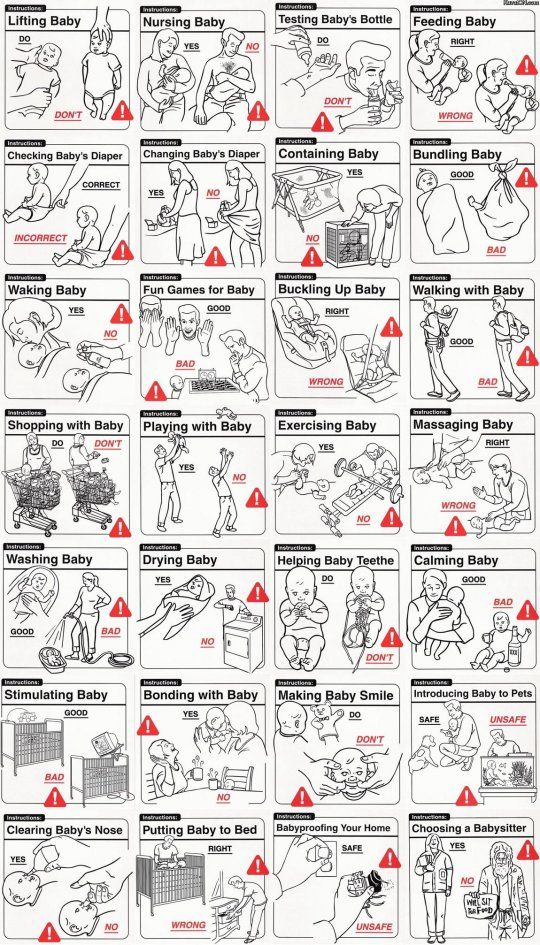 Just provide him with food rich in carbohydrates - and you will have peace and happiness. nine0022 Just provide him with food rich in carbohydrates - and you will have peace and happiness. nine0022 |
| Wrong food | As you know, what we eat directly affects our vigor, strength, mood. If you are used to chewing carrots and celery from morning to evening, these are no reasons to subject your baby to vegetarian "torture". When the principles of the family are such that the child is forced to refuse to eat meat, liver, eggs and other healthy foods, then you should contact a specialist who will recommend the right diet. |
There are also reasons why a child eats a lot of sweets:
- Firstly, at his age he may lack certain substances in his body. He tries to make up for them with sweets. This means that you need to feed your baby with cereals that are rich in complex carbohydrates. If the child constantly wants to eat sweets, in no case should you go on about. Eating sweets in the form that is meant by a little tomboy is harmful.

- Secondly, you may have used foods that your baby doesn't like during weaning. And he tries to make up for it with sweets and chocolate. nine0062
- Third, we all know that forbidden fruit is sweet. If parents intentionally hide goodies from a baby at 2-3 years old, he will go to great lengths to get them. It's more about interest than true appetite and desire to eat. Grown up kids understand more about what food is good for a snack and what is not. The positive example of parents is important.
Why does a child constantly want certain foods
An unusual situation arises if a child refuses sweets, but eats a lot of salt. This may be due to the fact that during pregnancy, the mother was drawn to cucumbers and other pickles, so the baby is used to such food. Or in his diet there is not enough meat products, for that there is a lot of food of plant origin. nine0003
If a child eats a lot of bread, it means that he lacks some microelements and B vitamins. Flour products should be eaten, but in moderation. Do not offer your baby bread that is high in sugar and butter. Carefully study the composition - there may be an allergy to various additives included in it.
Flour products should be eaten, but in moderation. Do not offer your baby bread that is high in sugar and butter. Carefully study the composition - there may be an allergy to various additives included in it.
Probably, a child of his age does not get enough of what you feed him at the common table. For example, you yourself prefer vegetarian food and try to feed your baby with it, forgetting that his body requires many times more energetically significant foods. He often moves, spends a lot of time developing, mastering something new. Whereas your life is more or less stable. nine0003
Read also: The child refuses to eat in kindergarten
In any case, if there are any problems with nutrition, the baby should be shown to a pediatrician or nutritionist specializing in children. Childhood obesity is much more sad than adult. These are ridicule in the team, and early complexes. Try to do everything possible to help the child cope with his problem.
why it happens, reasons, what to do at home
The lack of calories, like their excess, affects the well-being, the state of the body and the amount of energy. In childhood, as in adulthood, nutrition to a large extent affects the quality of life and affects important physiological processes.
Overeating combined with a sedentary lifestyle can lead to obesity. WHO estimates that 30 million children are overweight and 15 million are obese, with girls being the most common (1). nine0003
The eating pattern is formed at an early age and is more difficult to change as the years go by. Therefore, parents should pay attention to what and in what quantity their baby prefers to eat. Why does a child eat a lot and what to do about it? To understand this problem will help nutritionist, nutritionist and pediatric endocrinologist Maria Gerasimova .
How much should a child eat at different ages
Sufficient food helps the body to function normally. It is important that the diet is varied and rich in trace elements, minerals and vitamins. There should be three main meals and two snacks per day. nine0003
According to the recommendations of the Union of Pediatricians of Russia (2), the daily amount of food for children varies depending on age.
| from 1 year to 1.5 years | 1000-1200 grams |
| from 1.5 to 3 years | 1200-1500 grams |
increases not only the volume and calories.
| 1 to 2 years | 1200 kcal |
| 2 to 3 years | 1400 kcal |
At an early age, the need gradually increases not only for protein and energy, but also for essential vitamins and microelements, the most significant for growth processes and psychomotor development. The child's diet should contain iodine, zinc, iron, calcium, vitamin D.
The child's diet should contain iodine, zinc, iron, calcium, vitamin D.
Causes of increased appetite in a child
Feeding problems in a child can begin at an early age. Overeating (eating in excess of the norm) in scientific language is called hyperrexia. nine0003
During the weaning stage, a baby's appetite is largely dependent on how his gastrointestinal tract functions. Digestive problems can provoke not only a decrease in appetite and refusal to eat, but also a desire to eat more.
Anemia can be a factor in overeating - a lack of hemoglobin, oxygen-carrying cells. Another common cause is high blood sugar: with diabetes, a child will have an irresistible desire to eat more. The lack of vitamins and minerals also affects the excessive intake of food: when they are not absorbed from food, the body begins to require more food. nine0003
Overeating may be due to the fact that parents initially choose the wrong type of food for the child or exceed the daily caloric intake.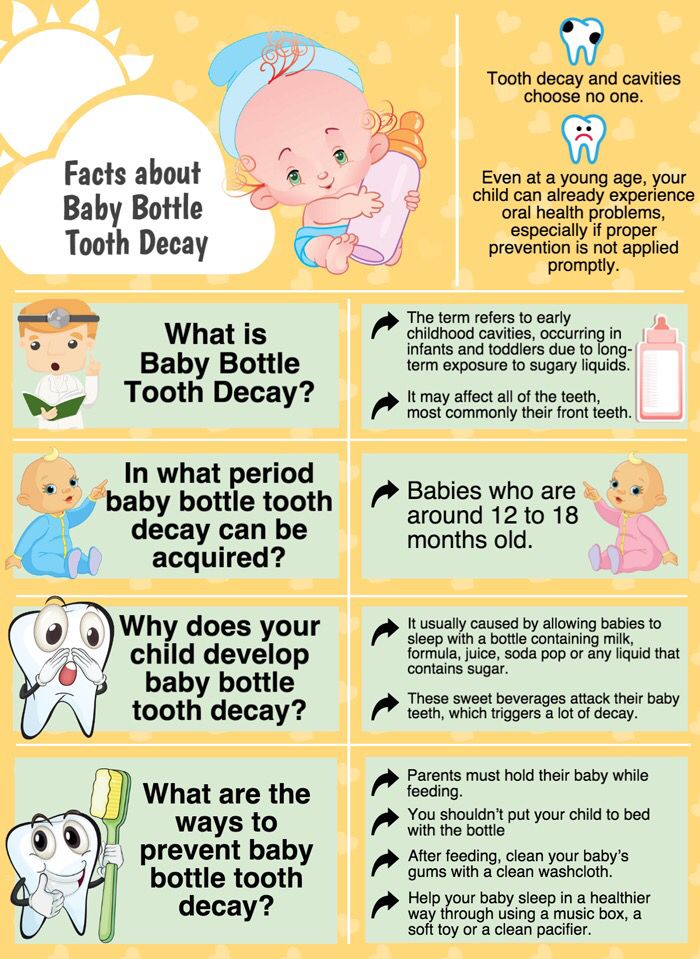 According to the Institute of Nutrition of the Russian Academy of Medical Sciences, in Russia 20% of children aged 12 to 24 months of life are overweight due to excessive consumption of carbohydrates, sugar and confectionery and insufficient consumption of meat, vegetables and fruits (3).
According to the Institute of Nutrition of the Russian Academy of Medical Sciences, in Russia 20% of children aged 12 to 24 months of life are overweight due to excessive consumption of carbohydrates, sugar and confectionery and insufficient consumption of meat, vegetables and fruits (3).
Psychological problems often lead to eating disorders. They can be encountered by both teenagers and young children. When parents regard any crying of a child as a result of hunger, when delicious food is the main source of pleasure in the family, the stereotype is fixed in the baby: “when I feel bad, I have to eat.” The basis of such disorders is serotonergic insufficiency (4). Later, the child develops a mechanism: when he feels bad psychologically or physically, he tries to eat more than the norm. This stimulates the production of serotonin, which is involved in the formation of satiety and emotional comfort. In addition, it is not uncommon for children to be rewarded for good behavior with sweets. This can also negatively affect eating habits. nine0003
This can also negatively affect eating habits. nine0003
How else can adults help a child eat too much?
Photo: Val Thoermer, globallookpress.com- When a parent determines a portion for a child, forces them to finish eating, following the innate sense of hunger and satiety is disrupted. It also happens when food / sweets become a reward, or some kind of manipulation is used to make the child eat this or that food, says nutritionist, pediatric endocrinologist Maria Gerasimova. - As a result, the child eats more than he should and really needs. And not what I would like. Gradually, this habit is fixed and leads to the fact that the child chronically overeats. With age, this eating behavior persists. In addition, a child who grows up with this approach does not distinguish between physical hunger and psycho-emotional craving for food; more often than other children, he tends to seize stress with something tasty, he is poorly versed in his own taste preferences. nine0003
Sometimes children experience overeating because they were previously restricted in their diet by their parents or because they themselves ate significantly less. A strict diet without a prescription can cause you to overeat on a permanent basis in the future. A baby in the first years of life can overeat due to the fact that his mother followed a strict diet during pregnancy, limiting the intake of nutrients important for the body.
A strict diet without a prescription can cause you to overeat on a permanent basis in the future. A baby in the first years of life can overeat due to the fact that his mother followed a strict diet during pregnancy, limiting the intake of nutrients important for the body.
Let's take a closer look at the main reasons that can lead to the fact that the child eats too much. nine0003
Diseases
The baby's body can fail even in the first weeks of life. Overeating can be caused by:
- diseases of the gastrointestinal tract,
- diabetes mellitus,
- problems with the production of hormones,
- diseases of the nervous system.
Certain types of gastritis can lead to compulsive overeating. The child is tormented by sharp pains in the abdomen, nausea and vomiting, hyperacid gastritis is accompanied by sour eructation and heartburn (5). With such diseases, nutrients are not absorbed properly and the child eats more even when he feels unwell. nine0003
nine0003
In this case, parents should contact a specialist, it is not worth solving the problem on their own.
Sometimes the child eats a lot in the presence of parasites that feed on particles of the food they eat. In this case, the weight remains at the same level, but the appetite doubles.
A pathological desire to eat is one of the first signs of type 1 diabetes. The child is constantly tormented by the feeling of hunger, and the number of meals increases to 5-6. In this case, the weight may even decrease. nine0003
The doctor will determine the specific cause, and he will also prescribe treatment in accordance with the diagnosis.
Imposed stimuli
Sometimes a child starts eating when faced with stimuli or signals from outside. For example, an association with the smell of some food may work. Or the kid was treated to a tasty treat for good behavior, despite the fact that the child has already had lunch. An unscheduled meal can also be "for the company. "
"
Difficulties in identifying individual nutritional needs can occur at any age, but most often pass from early childhood into adolescence. nine0003
Eating as a response to external factors is classified as an eating disorder. This can also include overeating due to psycho-emotional discomfort, “jamming” of problems and excessive appetite due to restrictions.
Often, against the background of such overeating, weight gain occurs, which leads to severe emotional problems. A link has been proven: the higher the body mass index in children, the higher the level of depression (6).
Stress
Children in adolescence and adolescence experience stress no less than adults. The period of adaptation of the baby begins from the first days of life, it can be difficult for him due to the fact that he does not feel an emotional connection with his parents or at the age of 3-4 years he cannot socialize. In adolescents, stress is more often associated with studies, relationships with peers, self-acceptance. nine0003
nine0003
In such cases, "sweets" act as a sedative. The child produces endogenous endorphins in response to excessive production of the stress hormone cortisol. Because of this, the desire to eat more increases, but the cause of stress remains.
Consequences of overeating in children
If a child overeats once, it is not terrible. But the constant excess of the daily calorie intake and a sedentary lifestyle lead to consequences that affect the state of the body. nine0003
The most obvious is weight gain. If overeating occurs on an ongoing basis, it can lead to obesity. It, in turn, leads to cardiovascular diseases, type 2 diabetes mellitus, reproductive dysfunction, diseases of the musculoskeletal system and the digestive system (7). The diagnosis of "obesity" is made only by a doctor who will assess the child's condition and build a treatment system.
Due to overeating, a child may encounter a number of psychological problems that are not easy to get rid of. nine0003 Photo: uwe umstätter, globallookpress.com
nine0003 Photo: uwe umstätter, globallookpress.com
“Eating disorders are serious psychiatric illnesses that lead to physical health problems,” says nutritionist Maria Gerasimova. - These are the infamous anorexia (extreme self-restriction in food, which can lead to exhaustion and death), bulimia (overeating under stress and then self-cleansing from food by some means), obsessive-compulsive overeating (a way to cope with stress, anxiety and other factors). Psychiatrists, psychotherapists, medical specialists (if indicated) should work with such patients. nine0003
How to stabilize a child's appetite
There are general recommendations that will help to normalize the appetite, as well as specific tips that will work for each age.
An important factor in the formation of eating behavior and an example for children is the eating habits of other family members, primarily parents (8). Already at the age of 2-3 years, the child pays attention to the habits of others and can adopt them. If it is customary in the family to eat at certain hours, the food is varied and rich in useful substances, it is enough to satisfy hunger, but not too much - then there should be no problems with overeating. nine0003
If it is customary in the family to eat at certain hours, the food is varied and rich in useful substances, it is enough to satisfy hunger, but not too much - then there should be no problems with overeating. nine0003
Parents usually take care of the baby's nutrition, but with age, the child begins to form his own diet, adding "extra" calories in the form of fast carbohydrates and sugar. As an option, talk about the nutritional value of food, that it is important not only the quantity, but also the quality of food.
Maria Gerasimova highlights the main preventive measures for the formation of healthy eating behavior.
1. Develop stable harmonious eating habits within the family. nine0003
- The best time to start is before conception: a varied mother's diet encourages the baby to choose varied and wholesome foods later on.
- Breastfeeding. Breastfeeding is a factor that contributes to the harmonious formation of eating behavior: it is more difficult to overfeed a child with a breast (unlike formula from a bottle).

- Lure. Here everything is in the power of parents: you need to work with your anxiety as much as possible, transfer responsibility for your hunger and satiety to children. This is not always convenient for parents, but it is important from the point of view of the formation of harmonious eating behavior so that children do not overeat and follow the physical need. nine0062
2. If there is a tendency to obesity. It is important not to broadcast an assessment of appearance in the family, not to push the child to diets, not to work with specialists who advocate strict diets and urgent weight loss. In the future, these restrictions can also lead to eating disorders, the formation of various deviations in the child and dietary thinking.
3. Proper diet. It is recommended to monitor the number of meals. Basically, there should be three of them: breakfast, lunch and dinner. In some cases, children are suitable for fractional meals: the number of meals increases, and the portion size decreases. If you can’t do without snacks, make them healthy: a small portion of nuts, vegetables with greens, sugar-free bars with a “healthy” composition. nine0003
If you can’t do without snacks, make them healthy: a small portion of nuts, vegetables with greens, sugar-free bars with a “healthy” composition. nine0003
Do not watch TV or scroll through your phone while eating. Teach your child to concentrate on the process, to chew food thoroughly. Otherwise, it's easy to overeat.
It is necessary to form the baby's eating behavior from birth. And at every age, use "tricks" to help avoid excessive calorie intake.
Up to 1 year
Most often, up to 6 months, the child is breastfed. After six months, they begin to introduce complementary foods. At this stage, it is important not to overfeed the baby, especially if the mother continues to breastfeed or formula at the same time. nine0003
Fruit and vegetable complementary foods are of great interest due to the wide range of flavors. This provides a variety of diets, and also affects the prospects for consumption of vegetables and fruits in the future. Research suggests that if your baby is eating fruits and vegetables by 6 months, they are less likely to turn up their noses at school age (9).
Until the age of one, it is necessary to monitor the reaction of the baby to certain foods. You should not limit the child, but you should also introduce new products into the menu gradually, without overloading the small body. This also applies to the consistency of food: at 6-8 months it is better to make mashed potatoes, and after 8 months you can add food with pieces. Equally important is the portion size. nine0003
1-2 years
At this age, the child begins to choose the foods that he likes best. Therefore, it is especially important to diversify the baby's diet with the help of fermented milk products, meat and fish, fruits and vegetables.
After 12 months, the child's gastrointestinal tract becomes accustomed to many foods that adults eat. Up to 2 years, the daily need for kilocalories is about 1200-1300. To prevent your child from overeating, you should not give him a lot of "liquid" calories, such as juices or liquid baby cereals. It is better to give preference to whole foods. nine0003
nine0003
3-5 years old
Young explorers aged 3 to 5 come to the kitchen not just to satisfy their hunger: for many it is a real ritual. It is important to encourage the child that he adheres to the norms of nutrition, does not lean on sweets and moves a lot.
The weight of a single serving at 3-5 years old should be approximately 400-500 grams. Calorie content for a three-year-old child is 1550 kcal, for older children - 1950 kcal.
5-7 years old
In order for the child not to overeat, it is worth diversifying the menu. It is optimal to pre-paint it for a week and make preparations. When cooking, use natural products. nine0003
The child will stop reaching for sweets if meals are balanced in terms of the ratio of proteins, fats and carbohydrates. And don't skip breakfast - it's the main meal that helps set you up for a productive day.
Older than 7 years old
The temptation to eat more sweets or have another snack increases when the child goes to school. It is more difficult for parents to control his nutrition, but it is possible.
It is more difficult for parents to control his nutrition, but it is possible.
Make sure you have snacks in between classes by putting together a container of healthy snacks. nine0003
Do not scold a child if he began to bite, ate too much candy or ate too many pies. The best thing you can do is talk to him about it, find out the reason and try to help. Remind your child that food is meant to keep you healthy, improve your quality of life, and enjoy it.
Popular Questions and Answers
Some issues related to children's overeating can be alarming for parents. We answer the most popular questions.
Why does the child eat a lot, but does not gain weight? nine0159
Some diseases may be the cause. For example, with parasitosis, a child will eat many times more, but at the same time his weight will remain normal. A similar situation can arise with a violation of the thyroid gland, with the development of type 1 diabetes mellitus.
If a child often asks for a supplement, eats more than usual, and his weight does not increase or even decreases, it is worth seeking help from a specialist.
How do you know if a child is eating enough?
In babies, you need to monitor the feeling of hunger, monitor the reaction to certain foods, pay attention to how the baby digests the vegetables introduced into complementary foods. nine0003
Older children can be asked appropriate questions, if necessary, add snacks to the main meals. Remember that for each daily norm of food consumed is individual.
When should I see a doctor about binge eating?
A nutritionist is involved at the stage when the patient is stable and able to work with his habits, change the diet. In patients with eating disorders, there is no question of weight correction until there is compensation for the underlying disease. nine0003
Sources
- Peterkova V.
 A., Remizov O.V. Obesity in childhood // Obesity and metabolism. 2004. No. 1. P. 17–19
A., Remizov O.V. Obesity in childhood // Obesity and metabolism. 2004. No. 1. P. 17–19 - National program for optimizing the feeding of infants in the first year of life in the Russian Federation. M.: Union of Pediatricians of Russia, 2010.
- Kazyukova T.V., Tulupova E.V. Nutrition in early childhood is the main factor in the formation and maintenance of health in later life // Pediatrics. 2012. URL: https://cyberleninka.ru/article/n/pitanie-v-rannem-detstve-osnovnoy-faktor-formirovaniya-i-podderzhaniya-zdorovya-v-dalneyshey-zhizni/viewer
- Mikhaleva O.G., Berezina M.V. Modern view on the problem of obesity // Irkutsk State Academy of Postgraduate Education, 2011. URL: https://cyberleninka.ru/article/n/sovremennyy-vzglyad-na-problemu-ozhireniya/viewer
- Savitskaya E.V. Features of gastroduodenal pathology in children of preschool and primary school age // Children's gastroenterology. 2008. No. 3. P. 35-37
- Zagrebaeva O.Yu., Solntseva A.V. Psychological aspects of the formation of various forms of obesity in children // Scientific research.




